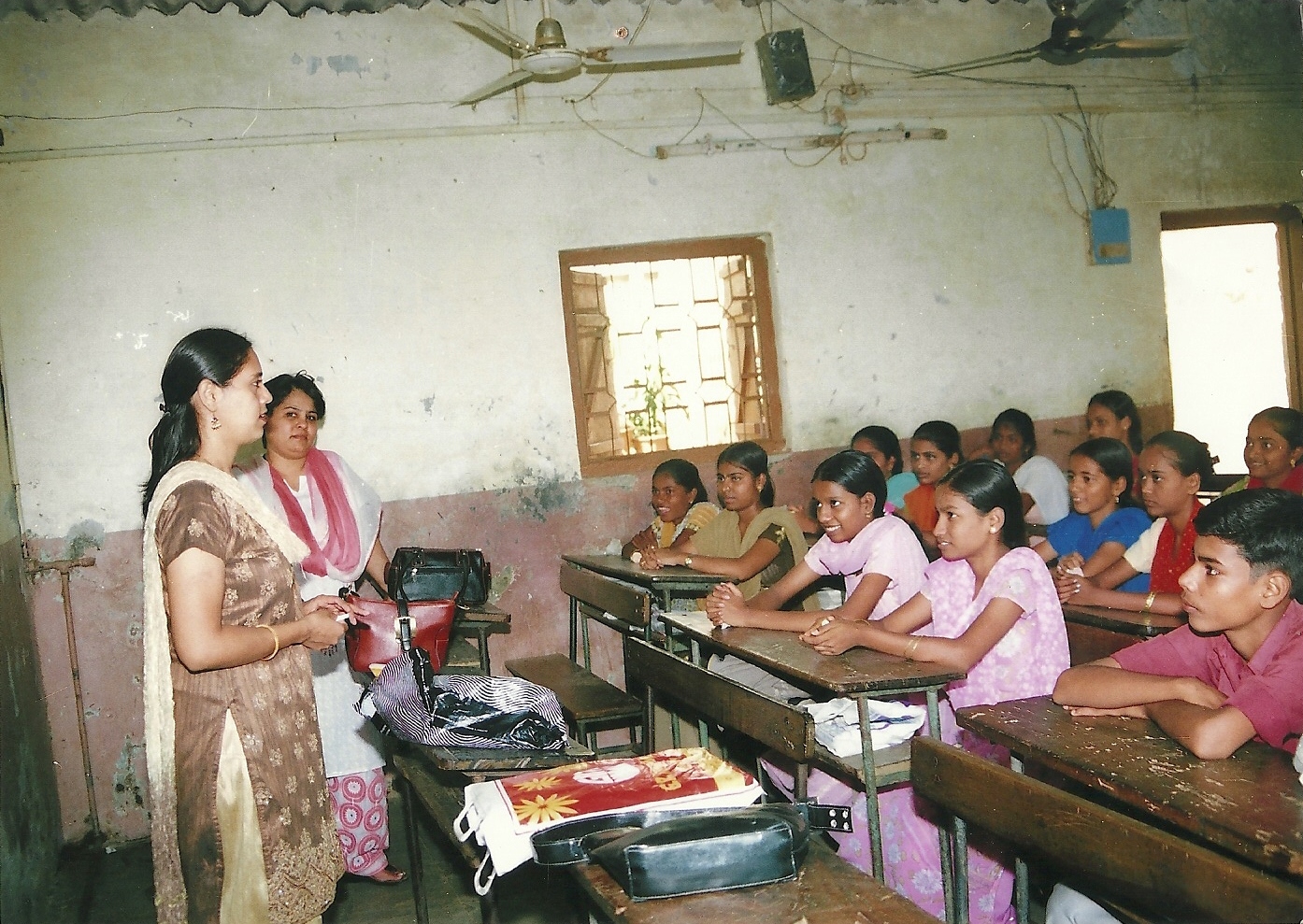Handling Childhood Misbehavior
Posted on 30th Jan 2015
Handling Childhood Misbehavior
Rewards keep children going and research proves that most behaviors are shown by all people especially children as they are self rewarding. Rewards can be of various types. They range from getting attention, power, recognition, money, release from assigned duties, physical pleasure, etc. Behaviors are learnt, shown on a continued basis and become second nature because these behaviors give us something that we want, and/or remove something unwanted from our midst.
Sometimes it is misbehavior or age inappropriate behavior that gets us what we want or removes the unwanted stimuli and hence they get ingrained in us especially in children.
Types of misbehaviors:
Frequently, the unacceptable behaviors fall into three basic groups:
- Physical abuse (breaking toys, hitting sibling, damaging property, etc.)
- Verbal abuse (yelling at others, teasing, using unacceptable words, threatening someone, etc.)
- Noncompliance (not obeying rules laid down by a parent, not following instructions, not doing a requested chore, etc.)
Goals of Misbehavior:
Dr. Rudolph Dreikurs describes four goals of misbehavior due to which children tend to misbehave:
If children: Then their probable goal is:
Stop a behavior, but then repeat it. Attention seeking
Refuse to stop and increase the misbehavior. Seeking Power
Become violent or hostile. Seeking Revenge
Refuse to cooperate, participate, or interact. Displaying Inadequacy
Thus it becomes important to find out what the goal of the misbehavior is which would then help the significant adults address the concerned issue in an appropriate manner.
Measures that can be implemented by adults:
Sometimes simple steps can go a long way in bringing about change and getting the desired behavioral response from the children. Following are some useful tips:
- Attention seeking:
“Ria, Don’t write on the walls”
“Sanjay, can you stop making that awful din with your drum.”
Most adults are quick to correct their children when they are doing something negative or wrong. And rightfully so! Also, many aware adults praise their children lavishly when they have achieved some goal charted out for them like good grades in school, or first prize in sports. But when it comes to giving positive attention casually, or for good behavior that they may have shown, most of us show inertia. If the child shows the right behavior, many adults hardly make a remark or tell the child that they are happy he showed such good and positive behavior. It is very rare for us to say “Mayur, I am so happy that you showed such good behavior at Neha’s birthday party. You did not shout or fight with anyone. You did not cry. You shared with everyone and played cooperatively. I am very happy. This is how I want you to behave in any party.”
We sorely lack in that kind of communication. Children are very perceptive and sense that they get the coveted attention only if they do something which is out of bounds. Thus sets in the need to do something negative so as to get the adult attention which they eventually do get. This is negative attention seeking. If adults could inculcate a discipline wherein they simply give positive attention randomly, simply because the child has done something nice, no matter how small or trivial, it will go a long way in suppressing the urge to indulge in negative behavior for the sake of attention. They will stop repeating a negative behavior if they perceive that it is easy to get attention by displaying good behaviors.
- Seeking Power:
“Oh…, my poor little darling is crying…..she must be hungry. Let me feed her immediately.”
All adults know what it is to be at the beck and call of a newly born child. The evolution process has programmed new born babies itself in such a way that they function as the epicenter around which all others revolve. Thus all their basic needs get fulfilled with a simple cry. Now that is commanding power! In the growing up years then it is easy for children to get habituated to being in this ‘powerful’ role and think that they should be allowed to do what they want to and that others oblige them. However by the age of two, it becomes important to clearly start setting boundaries so that children understand what is permissible behavior and what is a ‘big no no’.
(a) There would be times when it is important to show them that you are the boss.
Neel is in the habit of screaming loudly if things don’t go his way. His parents are at their wits’ ends with his screeching. The usual pattern is that they start by saying ‘no’ to any particular request or demand of his and then when he starts screeching they give in to stop his screeching.
Neel’s screeching can be stopped by sustained and patient efforts. There are several alternatives that you can exercise according to the need of the situation:
- If his demand is not too unreasonable you can fulfill it the first time round he asks. This will make him understand that he does not need to screech for his demand to get fulfilled. Here it would do you good to take a rain check as to whether you are a ‘NO’ parent. A ‘No’ parent is the one who says ‘No’ just for the sake of it and has got habituated to it just like Neel has to his screeching.
- If the request is unreasonable you can explain in age appropriate ways as to him why you cannot fulfill his demand. Try linking the cause and the effect. For instance if he is asking permission to jump from the fourth stair, try to explain how he might fall and hurt himself badly and that he would then have to go the doctor and take medicine or an injection.
- If an explanation is not possible and would be beyond his age’s understanding then it is best to state that even if he screeches you will not be giving in. And please adults DO THIS. Don’t give in because you cannot bear his screeching or are embarrassed because he is screeching in front of others and making a scene. Just bear with it. In the long run this will pay off.
- After the screeching and tantrum is over, when Neel is in good spirits explain to him that screeching will not get him what he wants. Instead if he asks politely you may say yes to some of his reasonable demands. Also keep repeating that screaming and screeching will not fetch him what he wants.
- Become a good story teller. Make up stories with animal character where one animal screeches and another does not, and how the one who did not scream ended up being the good one , getting attention, praise and also at times the toys that he wanted from his parents.
(b) All said and done there would be times when you need to ignore the behavior temporarily and NOT get into a power struggle….so that it breaks the cycle. Thus at times if Neel screams just ignore till he stops. If he does not, distract him to some other activity which will hold his attention.
- Seeking Revenge:
Karan becomes aggressive and immediately hits back his father if he scolds him. There are complaints from the school too that he hits other children if the teacher gives them attention.
Children do not like it if they are scolded or reprimanded and many a times want to hit back. If the child becomes violent first and foremost it is important to see to it that you do not lose your temper at that time. Remember that the child is watching you closely. If you lose your balance and get riled up the situation is only going to worsen. It will need immense self control however you ‘have to do it’. Practice before you preach is the mantra here. So just focus on helping the child by protecting him from getting hurt.
Later when the emotional or physical outburst has ended it is important to talk to the child that this is not the correct thing to indulge in. Be gentle but be absolutely firm. Telling Karan that when he was angry daddy could also have got angry and hit him back as daddy is big, but that daddy did not do so would help Karan understand that he should not be aggressive.
Also give lots of instances of whether Karan has seen daddy or mommy hit anyone else. When Karan answers in a negative for each question, he would realize slowly that hitting is not acceptable and no one but he does it.
Further it is important to keep repeating yourself even at the cost of sounding like a stuck up tape. Inconsistent disciplining is more dangerous than no disciplining as it confuses the child further. So whenever he shows vindictive behavior it is important to reiterate that this is unacceptable behavior.
Introduce the principle of loss if the vindictive behavior continues. Tell him that he will lose the privilege of sitting with you on the swing or that you will not talk to him. And live up to your promise. Again explain the cause and effect to him.
If your child is revengeful or vindictive, check where he is learning it from you or your spouse. Also look at other spheres of influence like the extended family, peers, school, etc.
Displaying inadequacy:
It is important to identify and see whether as a parent you are fuelling the sense of inadequacy in any way. Many parents do the task of because it saves a lot of time. I know of a parent who helped her son wear socks till he was in the tenth grade! He has now moved to wearing Velcro shoes as he never learnt this skill. Are you such a parent? Ask yourself and if the answer is yes, Stop!!! Don’t jeopardize your own child’s growth and development. Teach them the age appropriate skills even if it takes time. Please show patience.
Children may feel inadequate on two accounts:
- Realistic feeling that I cannot do it: Rahul who is in the II grade feels overwhelmed when he is asked to keep his timetable. Helping Rahul by sitting with him and guiding him through the task by breaking the activity in smaller parts would help him a great deal. You could ask him to keep only the text books first and then the notebooks. This would help him do it and give him a sense of achievement. This may take a lot of your time but in the long run Rahul would be able to function independently without your help.
Also boost this child’s self esteem by pointing to his strong points, appreciating small achievements, allowing independent decision making in small issues and so forth which would help him build a sense of adequacy.
- Wanting to shirk responsibilities: Some children learn to shirk work by making inadequacy an excuse. If this is so, you would need to be firm with them. Don’t be quick to put their timetable in the bag if they proclaim that they cannot do it. You will be left to put the timetable and he will go and watch TV. This is not done. Of course do not go to the other extreme of stating that he has to keep it or bear the teacher’s brunt. The golden mean is to make it compulsory that you will help put the timetable provided that he sits with you throughout and helps you put the books in the bag. Thus you are not letting him off easily and neither exposing him to external dangers.
Also give small responsibilities to this child time and again and reward him with ample praise. Make him help you in small errands. This would help him to develop a sense of responsibility eventually.
All said and done, parenting is a challenging job. Your limits will be tested all the time by your child. Do not treat this job lightly and invest time in it. You will definitely reap its benefits in the long term.
Ms Shital Ravi.
Shital is a practicing counseling psychologist at Disha Counseling Center and is also a parent herself.
- Exam
- Careers
-
 Inlaks Shivdasani Foundation for any field Scholarship Opportunities
Inlaks Shivdasani Foundation for any field Scholarship Opportunities
-
 Asha Shree Endowment for Graduate or post-graduate professional degree courses Scholarship Opportunities
Asha Shree Endowment for Graduate or post-graduate professional degree courses Scholarship Opportunities
-
 Gaurav Foundation for Indian school-college and college abroad Scholarship Opportunities
Gaurav Foundation for Indian school-college and college abroad Scholarship Opportunities
-
 TOEFL Scholarship for 9,000+ institutions Scholarship Opportunities
TOEFL Scholarship for 9,000+ institutions Scholarship Opportunities
-
 Fair and lovely scholarship for any graduate and post-graduate Scholarship Opportunities
Fair and lovely scholarship for any graduate and post-graduate Scholarship Opportunities
-
 dfsd
dfsd
- fgdf
- Tuesday, 23 September 2014
-
 dfsd
dfsd
- fgdf
- Tuesday, 23 September 2014
-
 Nice design
Nice design
- Sakura
- Thursday, 31 July 2014
-
 Hello, this is a demo
Hello, this is a demo
- david Hoang
- Thursday, 31 July 2014











